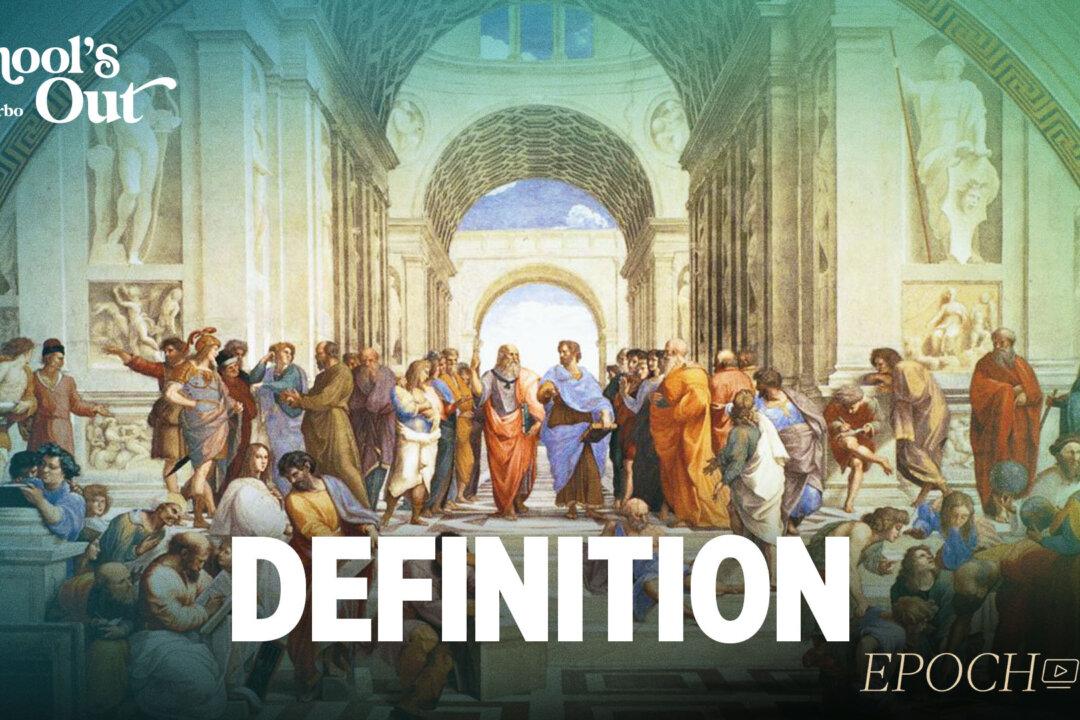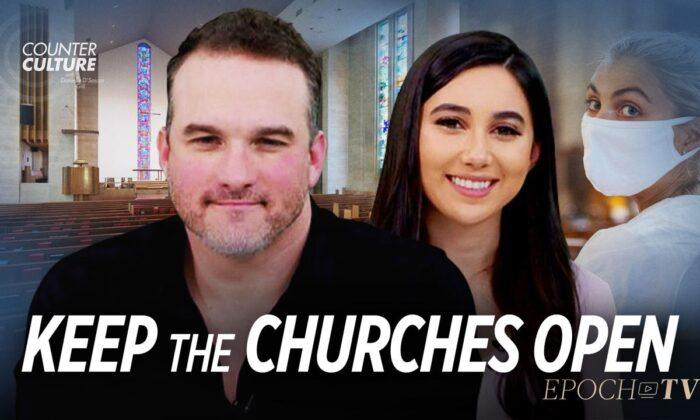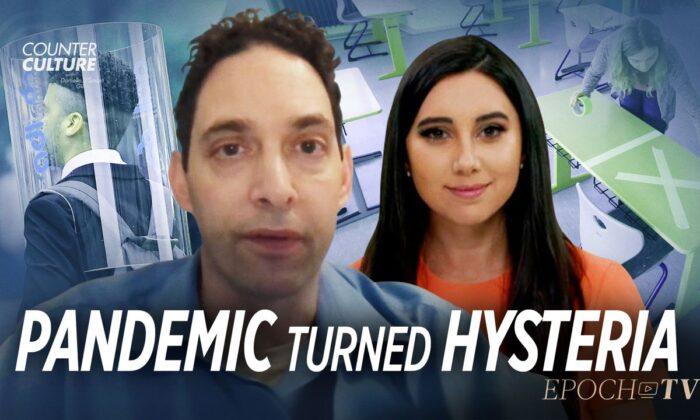Sorbo provides compelling arguments and encouragement that are crucial in a time when public schools are not just brazen in their defiance of parents’ wishes, but open in proclaiming that they are smarter, wiser, and all-around better than a mother and father at determining a child’s needs.
This idea is highlighted in all its ridiculousness within the first few minutes of the video. Sorbo provides the current Merriam-Webster online definition of “education,” which is, more or less, “to be educated.” Dissatisfied with this, she goes deeper into the definition of “to educate,” a verb that has become broad enough to include “to persuade or condition to believe or act in a desired way.” This is a far cry from the definition two hundred years ago, something Sorbo also provides, and that shows the contrast between the way we view education in modern times versus when our country was founded.
In 1828, the definition of “to educate” had more to do with leading and enlightening a child, rearing them to adulthood, and preparing them to be functional, productive members of a moral society. The modern Left has obviously taken the current definition that education involves persuading and conditioning to heart, dismissing all other definitions of the word. This is evidenced by current school board brouhahas surrounding, in particular, critical race theory and transgender activism.
Schools are setting curricula not based on the premise of leading and enlightening children, but on schooling them on the “correct” way to think. The literal definition of education is an absurd example of the de-evolution of the English language as championed by the Left, where words are redefined willy-nilly based on the emotional dictates of popular culture and the desires of our bloated bureaucracy to control the masses, but Sorbo doesn’t stop there.
Instead, she dives into the ways in which our current public school system functions like an authoritarian regime that has parents so frightened of stepping outside the system they never even consider it. Parents, she argues, have been indoctrinated to think our current education system is the only option, in the same way citizens in the former USSR thought nothing of standing in lines to buy a scarf at a department store.
They don’t think there’s another way to educate their children, and as a result, believe our current way of educating children is sufficient. Not only do they think it’s sufficient, but they’ve been conditioned to think that it is the only way children can be taught. Parents believe they can’t do any better because they don’t have a mastery of every subject taught in schools, yet shouldn’t they be able to teach basic subjects like math, English, and history if their education was supposedly top-notch?
The public school system, in reality, wields its power to convince parents that they just aren’t qualified to educate the same children they’ve already taught to tie their shoes, brush their teeth, eat with a spoon, and a myriad of other life skills. They do this largely through fear. Sorbo equates it to the East German government telling its citizens for decades that the Berlin Wall was there to keep the dreaded westerners out, not to keep them in, and how the population simply believed them until the wall came down. She uses this analogy to make the viewer reconsider whether it is truly necessary to have the mastery of a Ph.D. candidate on a subject before taking control of a child’s education at home, or whether that’s just what parents have been taught to believe because they’ve never known anything different.
That question is especially valuable in helping to prod hesitant parents toward believing they are the ones who are wiser, smarter, and better at knowing their child’s needs. Sorbo reminds her audience that public schools have increasingly used a model of teaching a subject to pass a test, not to prove overall proficiency, as a way of educating students.
Public schools, in effect, teach for memorization, not mastery, so why do parents think teachers are masters of their subjects as opposed to masters of teaching to the test? Why do parents believe public schools want students to master any subject at all when they continue to demonstrate their main goal is to churn out children who can give the right answer on a quiz on command, as opposed to thinking through a problem and coming to a conclusion? That’s the difference between mastery and mimicry, and Sorbo argues that public schools are largely interested in the latter.
Parents have been cowed into believing they haven’t mastered a subject well enough to teach it to their children, when in fact all public schools do is teach mimicry anyway. Anyone with a child in a public school should be able to see the sense in this argument and rethink whether they’re truly unqualified to take control of educating their child.
Sorbo also reminds her audience that education wasn’t always considered the be-all-end-all in determining a child’s potential and future. While the common refrain today is that children must go to college in order to find a good job and have a secure future, this hasn’t always been the case. Many of our greatest inventors never went to college, such as Henry Ford, his son Edsel, and the Wright brothers.
The idea that a college education is necessary for making great leaps forward in human understanding, the search for truth, and our place in the universe is a relatively modern belief. It is also a belief that is directly contradicted by the actions of colleges themselves and the school system that claims an ultimate goal of preparing students for college.
Sorbo highlights one instance at National Cathedral School, which is an elite prep school for girls in grades 4 through 12 in our nation’s capital. An administrator of the school is reported to have said, “We don’t teach objective truth.” As Sorbo rightly asserts, if truth is only subjective, then it doesn’t exist. This line of thinking is becoming the norm in public schools and only accelerates at both public and private universities. The modern trend there is to so thoroughly hammer home the indoctrination of public schools that students graduate college knowing the “approved” ways of thinking and never question what they’ve been taught. In fact, it would never even occur to them to question what they’ve been taught. They’ll have spent nearly their entire lives only learning what to think, not how to think.
Acknowledging this reality is fundamental as our education system continues to lurch leftward at an alarming rate. Higher education has leaned left for decades, but anyone who had to deal with remote learning in 2020 has surely noticed that trend bleeding into the K-12 system, where fourth graders are being given questionnaires about their sexuality and how they identify, then instructed not to tell their parents about what they’ve been asked.
In the not-too-distant past, we taught children that any adult who wants them to do something they might not be comfortable with and insists they not tell their parents was dangerous. The reality that it is now teachers telling children to keep secrets from their parents makes this installment of Sorbo’s series even more crucial to watch. Her straightforward discussion of the way education has been systematically redefined to be something parents approach with fear will embolden anyone considering homeschooling their child. It is a must-watch for those still on the fence.
Follow EpochTV on social media:




